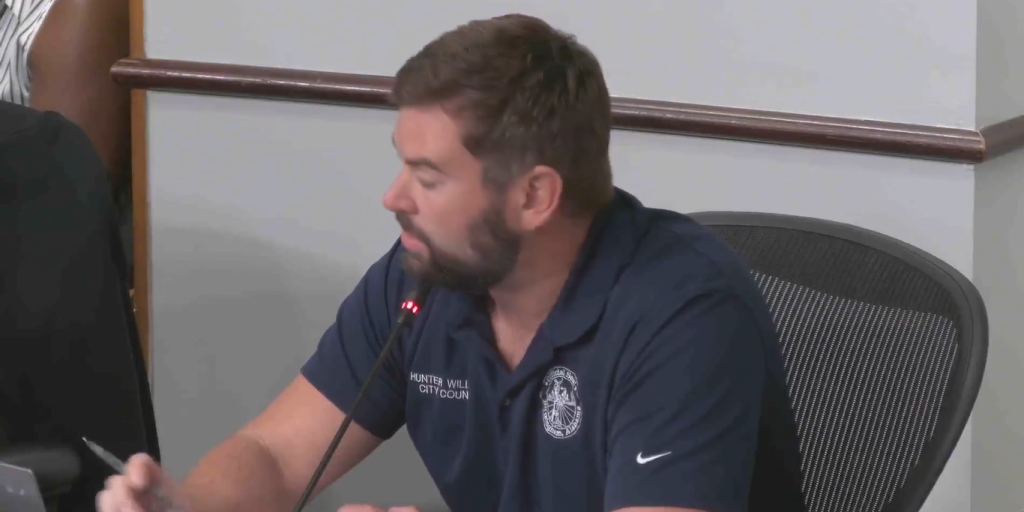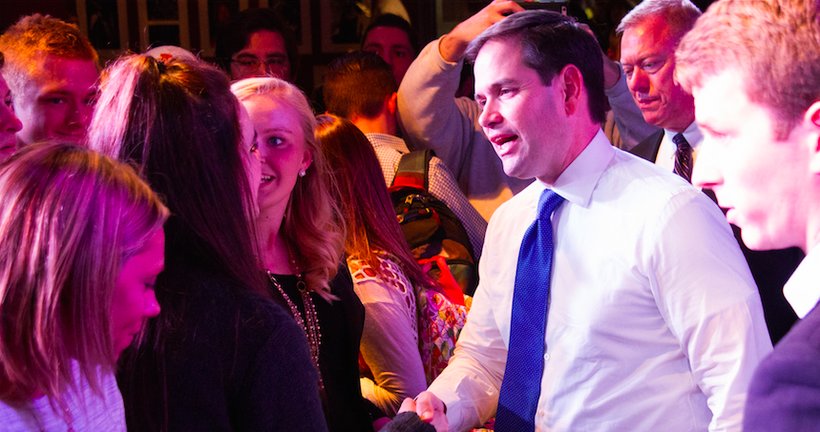It would be hasty to presume that the pending congressional vote on military action in Syria will be a pivotal issue in the Republican presidential primary two years from now.
But the philosophical argument that New Jersey Gov. Chris Christie and Kentucky Sen. Rand Paul engaged in this summer has now presented itself in a real world scenario: What’s the criteria for U.S. intervention abroad and how is victory defined?
Whereas several of the top 2016 contenders have staked out strong positions on whether to launch an airstrike on the civil war-torn Middle Eastern country, it is the eventual vote of Sen. Marco Rubio that will arguably be the most revealing on multiple fronts.
On one side of the Florida senator is the anti-interventionist duo of Sens. Paul and Ted Cruz, both who are highly skeptical an air campaign would achieve any worthwhile goals and deeply distrustful of the president and his ultimate military objective. While Christie hasn’t issued a formal view on Syria, it’s presumed that he falls on the other side of the spectrum, likely falling in the camp of Sens. John McCain and Lindsey Graham, who advocate a strong, muscular response against a brutal madman.
Rubio is, in essence, the man in the middle.
“I think politically it’ll be a tough vote because there are a lot of people who don’t want to see us engage in another Middle Eastern conflict,” said GOP strategist Rick Tyler.
While Rubio’s inclination appears to favor a strike in the defense of American interests, he’s also signaled a frustration with a commander-in-chief who he feels has been passive and incohesive when it comes to foreign policy.
Rubio, a member of the Foreign Relations Committee, called for Syrian President Bashar al-Assad to step down back in April, co-sponsoring a resolution that asked the Obama administration to provide assistance to opposition forces and develop a plan to deal with Syria’s biological and chemical weapons.
He was, frankly, ahead of the news curve.
But now, as Obama lobbies feverishly for intervention as a result of what the U.S. believes to be a large-scale chemical attack on civilians, Rubio has said his country is left with “no good options,” hardly a clarion call to dive into the months-old conflict.
“The United States should only engage militarily when it is pursuing a clear and attainable national security goal. Military action taken simply to send a message or save face does not meet that standard,” Rubio said Saturday in a statement that allows him ample wiggle room before he comes to a conclusion.
If Rubio opposes intervention, he risks being lumped into the Paul-Cruz wing, which spooks many establishment Republicans who believe an anti-interventionist policy could hurt U.S. interests in the long-term. If Assad is somehow dislodged and conditions on the ground eventually improve, he also risks being on the wrong side of history.
Yet if he signs onto action, he will alienate the growing chorus of conservatives who ascribe to the notion that the U.S. needs to pull back from an ambitious foreign policy that seeks to influence the outcome of unpredictable world events in dangerous places. (For instance, in an extraordinary move, the chairman of the Iowa Republican Party forcefully weighed in against military action in a pointed letter.) And politically, Rubio leaves himself at the mercy of Obama’s strategy and implementation. If Obama’s Syrian war goes bad, Rubio’s on the hook for it.
“Rubio has built his reputation on a strong foreign policy and to his credit, he has urged Obama to take action long before this. What he’s risking is Obama’s execution,” said Tyler, who guesses that Rubio will end up voting in favor of military action.
But Rubio’s ultimate vote won’t only be significant in the context of his own political aspirations; it could foreshadow a tipping point in the GOP when it comes to foreign policy.
If he sides with intervention, however reluctantly, he will be staking out traditional turf in the GOP and look more like the pseudo-establishment candidate-in-the-making for 2016. But if he is a “no”, it will be pointed to as a leading indicator of how much the modern Republican Party’s foreign policy compass has moved since they last occupied the White House.
Follow Dave’s blog at TheRun2016.com











